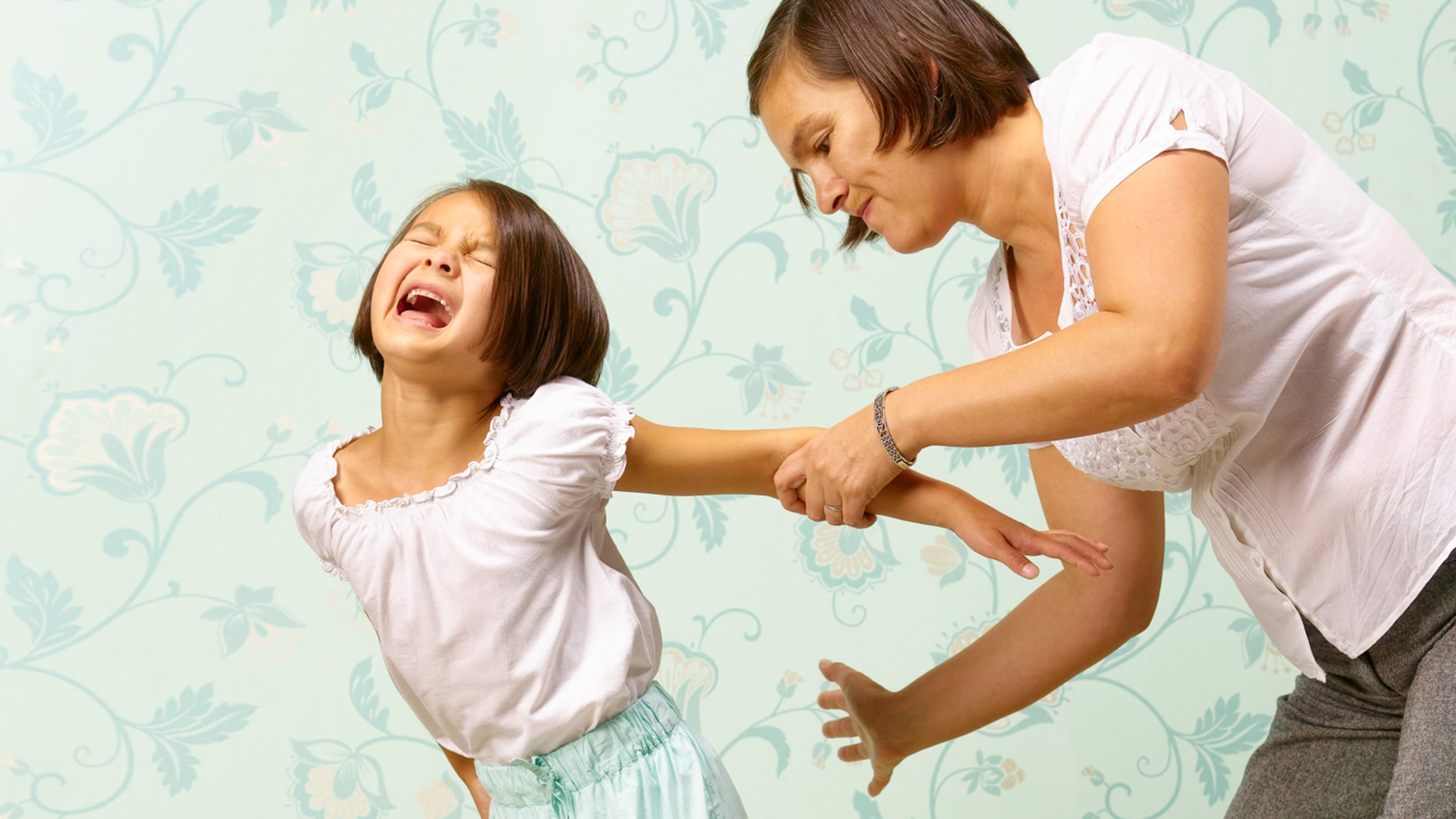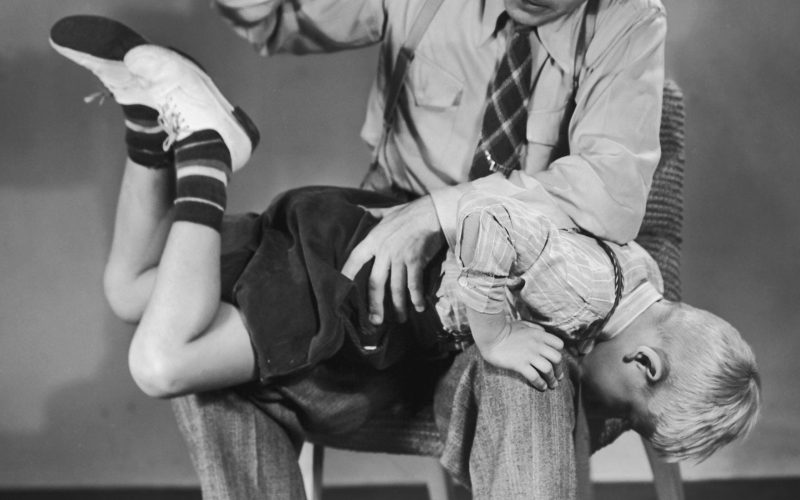Do you remember the last time you got a “Whopping” in your ass? You probably got upset with your Mum or Dad.
Well, parenthood is a hard job. From the happiness and thrill of finally holding your baby to the frustration and angry expression of disapproval of your child’s misbehavior.
Every child is different in attitude and character, but at some point, they all tend to behave badly and misbehave.
Parents, in their best and right sense of morality, must correct that child, and as such, they all employ different methods and approaches in correcting a child’s behavioral pattern.
One of the top methods is Spanking! Spanking is actually a common form of corporal punishment.
It involves the act of striking the buttocks of another person to cause physical pain, generally with an open hand.
More severe forms of spanking, such as paddling, belting, caning, whipping, and birching etc.
They all involve the use of an object instead of a hand. Adults more commonly spank boys than girls, both at home and in school.
As with all forms of correction, punishment and discipline are absolute opposites.
Punishment is motivated by anger, focuses on the past, and results in either compliance (due to fear) or rebellion and feelings of shame, guilt, and/or hostility.
Conversely, discipline is motivated by love for the child, focuses on the future, and results in obedience and feelings of security.
This is because the term discipline derives from the root word “disciple,” which means “to teach.”
Parents have an ongoing opportunity and responsibility to teach their children how to live as effectively and healthfully as possible.
We want children to understand that the gentle sting of a spanking is connected to the greater and often long-term pain of harmful choices.
But, prevention is easier than cure. Parents may spank children in response to undesired behavior.
You can say that spanking is an appropriate form of discipline.
Reasons for Spanking
A popular quote from the Bible says, “Foolishness is bound in the heart of a child, but the rod of correction shall drive it far from him.”
If you have never heard this before, you probably must have heard this one- “Spare the rod and spoil the child!”.
This means that one who loves a child will correct that child by all means, including spanking, but the parents who choose to ignore the rod spoil the child.
In other words, the child gets worse. So, what other reasons do we spank our children?
Desperation
When kids frequently misbehave, parents may feel that all measures have been ineffective and are unsure of what else to do.
Parents in these situations might say, “Nothing else seems to work.” Then they spank their kids.
Exasperation
This is similar to desperation. Spanking might be done out of impulse, anger, or provocation.
A parent who reacts out of frustration (“I can not believe you just did that!”) might spank a child without thinking.
Parents admit they have occasionally spanked their child—especially when feeling overly pressured and stressed.
The above two are the major reasons, so whichever camp you belong to, you need to know and closely consider the potential consequences of physical punishment, including spanking.
Does It Have a Positive and Negative Effect?

Also, about spanking in schools, there have not been as many studies addressing corporal punishment in schools. Still, the existing research is consistent with what we know about parental spanking.
In countries worldwide, school corporal punishment is linked with worse emotional and academic outcomes (Gershoff 2017; Ogando Portela 2015; Talwar et al. 2011). There is also evidence that acts of public shaming backfire.
They tend to make individuals feel either hopeless or angry and unrepentant. These feelings do not inspire kids to improve their behavior. Then, there is a very different problem, which is that kids are not subjected to equal treatment.
Studies reveal that corporal punishment is meted out with bias. For example, in U.S. states where corporal punishment in schools is legal, Black students are more likely to receive physical punishment than White students, and this disparity is unrelated to rates of misbehavior.
For a given offense, black children receive more severe punishments than white students do (Gershoff and Font 2016).
Some countries have outlawed the spanking of children in every setting, including homes, schools, and penal institutions, but most allow it when done by a parent or guardian.
In many countries today, people are questioning their traditional acceptance of spanking and making big changes.
Since 1979, 54 nations have outlawed corporal punishment (Global Initiative to End Corporal Punishment of Children 2019).
The American Academy of Pediatrics has recently recommended that parents avoid all forms of physical punishment, including spanking (Sege et al., 2018).
Yet some parents still favor corporal punishment, especially those who endorse authoritarian principles of child-rearing (Coley et al. 2016; Friedson 2016; Gunroe 2013).
Nowadays, spanking has decreased as many parents, both in Africa and beyond, no longer approve of this method. But a positive side to this is that Spanking works and it has positive effects on the child.
Research by CTV News in the U.S. found that “children spanked by their parents may perform better at school and grow up happier than those who don’t receive such punishment.”
What Else Can Be Done?
Spanking should become even less frequent as children age and be administered within proper guidelines as other consequences are utilized.
Also, a child should never be abused. Spanking should be phased out completely before adolescence.
Depending on your point of view, you can choose to consider alternatives such as:
- Removing privileges: This works by removing certain privileges enjoyed by your child. This helps reinforce your rules without causing physical harm to your child. Examples include no parties, TV, candies, and sweets, etc.
- Praise good behavior: When you catch your child “doing good,” ensure they know you noticed. Kids tend to perform to their parents’ expectations. You could also praise your child with a reward system. This encourages positive behavior.
- Take a heart-to-heart talk with your child: Having a heart-to-heart talk helps mentally and psychologically. You could have a timeout with the child. Try to understand the reason for the behavior, as kids sometimes act out because they need attention. Timeout gives you time to help your child/children work through their emotions in a physically safe space.
Conclusion
Parenting is a hard job. None of us do it perfectly. But our children need us to do it to the best of our ability, with all the wisdom, love, gentleness, and strength we can muster. We won’t go wrong if we exercise a firm, consistent hand with a soft, loving heart.
References;
- (Gershoff 2017; Ogando Portela 2015; Talwar et al 2011. School Corporal Punishment in Global Perspective: Prevalence, Outcomes, and Efforts at Intervention).
- Coley et al. 2016; Friedson 2016; Gunroe 2013, The Concept and Components of Engagement in Different Domains Applied to eHealth: A Systematic Scoping Review).
- Contentious study says spanking may benefit children; CTVNEWS








